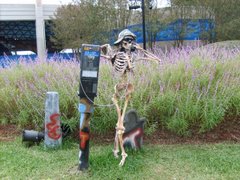Discuss the role of emotional language in your L1 and L2. Which language is emotionally richer. As your learners acquire (participate?) in their new speech communities do you see a change in their emotional language behavior. Reflect on the notion of (re)construction of delf in your own L2 or L3 learning experiences.
I feel that I have two emotional languages, in which I can convey my emotions fully. I would have to attribute that to growing up in a bilingual home. Through the years I have attended church services in Spanish, and feel more emotionally connected to expressing religous feelings in Spanish. On the other hand, politically I have always read articles, and journal in English, and feel more comfortable expressing my political views in English. My experience so far has shown me that students do to some extent try to participate emotionally in their second language, but depend on L1 to express fully their feelings. As a bilingual teacher I will try to always take that into consideration, facilitating students to express feelings without hindering language learning. I recall several instances in which friend of mine who were learning Spanish were so intrigued with the language and culture they wanted to be part of. I remember them trying to change their names to sound more Spanish like. I could see a transformation of their self, as they grew closer to the Spanish culture, and its language.
Thursday, June 28, 2007
Subscribe to:
Post Comments (Atom)

2 comments:
Alfonso,
Me parece genial que puedas expresarte en los dos idomas sin ningun problema. En realidad esa es la idea que tengo para mi hijo cuando creza. Que tenga fluidez en Español e Inglés.
Cuando mencionas sobre religion y politica y de tu habilidad para expresarte o entender mejor una que otra en determinado lenguaje, dejame decirte que lo mismo me pasa a mi. Muchas veces en Inglés me encuantro muda en algun contexto porque aveces no tengo mucha participacion en algun tema que se maneje, aveces no se que palabras puedo usar y que me ayuden a expresar mejor lo que quiero decir. Por eso me parece muy bien que tu lenguaje sea fluido sin importar el idioma.
Juanita
P.D. No te apures por lo que puse en mi blog. No me gusta pelear.
Hey, Alfonso.
That is really interesting, that your brain naturally separates church and state in such a fashion! Very interesting!
Anyway, that is very well-put when you said you witnessed your friends' "transformation." Becoming fluent in a language is often tied to a specific culture that speaks that language. For me, it really was Mexico, although I avidly read stories about and from Central and South America and Spain, too. While I did not change my name (there really was no good option for Joleen in Spanish), I now realize I was kind of a wanna-be Mexicana. When I unpacked my books that had been hidden away in my folks' garage while I was in Asia and Chicago, I was amazed at how many books in Spanish, or in English by bilingual authors, or books about the region (fact and fiction) I had accumulated and read. I guess I tied it in with my (then) newly found love of traveling. Whoa, rambling on! Gotta go.
Post a Comment